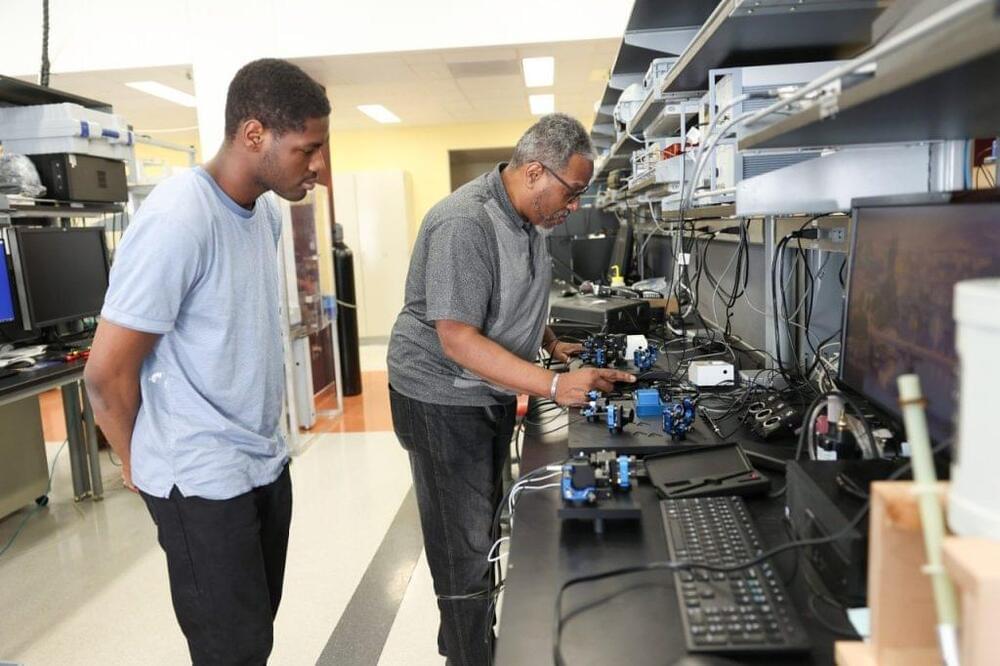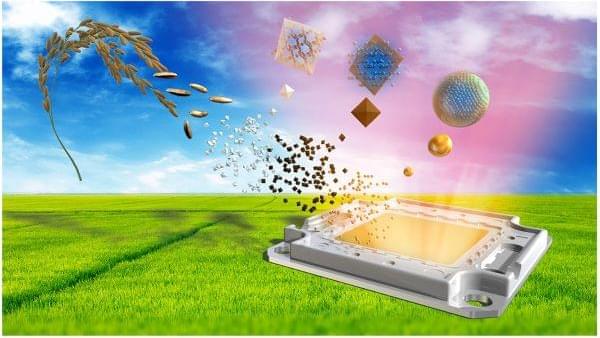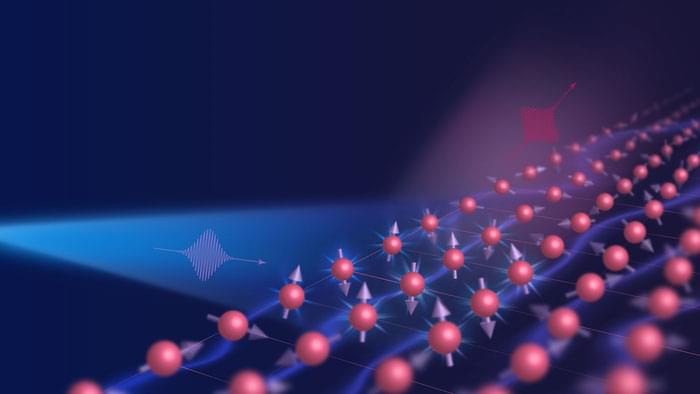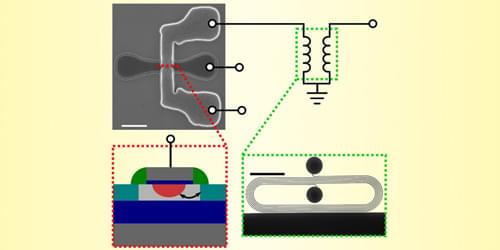Just as electromagnetic energy is quantized into propagating photons, acoustic energy propagates in quanta called phonons. The science of photon behaviour – called quantum electrodynamics – is an important branch of modern physics because it provides a relativistic description of the interaction of light with matter. Scientists have used the theory in a variety of applications such as atomic clocks and quantum computation. In recent years, scientists have begun applying some of the same concepts to phonons in a field called quantum acoustodynamics. Last year, for example, two groups independently used laser-based measurements to entangle the oscillations of membranes in cavities.







